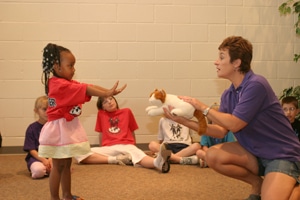Parents, teachers, and other caregivers need to know that their children are more likely to be abducted or assaulted by someone they know rather than a stranger. Children need to have clear safety rules both for strangers and for people they know. Children need to understand that there are different safety rules when they’re not in the care of an adult and they are on their own. Children who are only a short distance away from an adult in charge even for a few minutes are on their own. They don’t need to worry. They just need to know what to do.
Telling children about safety or showing children what to do is not enough. When we just talk to children about danger, it can actually raise their level of anxiety. Young people learn best by actively participating. Practicing safety skills increases their confidence and competence. It is important to do this in a way that is not scary, but is fun. Your child can learn with you, or in programs such as Kidpower.
Children need to know these Kidpower safety rules:
- A stranger is just someone you don’t know and can look like anybody.
- Don’t let a stranger get close to you, talk to you, or give you anything, unless you check first with the adult in charge.
- If you are old enough to be out on your own without an adult to ask, it is safer to be where there are other people close by to get help if you need it. Don’t give personal information to a stranger or to someone who makes you feel uncomfortable.
- It is OK to get help from strangers if an emergency is happening to you, and there’s no one close by that you know.
- Check first with the adult in charge before you go anywhere with anyone (a stranger or someone you know). Be sure to inform the adult in charge where you are going, who will be with you, and what you will be doing.
Children need to practice:
- How to stand and walk with awareness and confidence.
- How to keep a safe distance from someone approaching them.
- How to walk away from a stranger without talking or hesitating even if that person is being very nice.
- How to make a plan for getting help if they need it.
- How to make noise, run, and get to safety in case of an emergency.
- How get assistance from a busy or insensitive adult.
These are just a few of the safety skills that Kidpower has to offer. For more information, call Kidpower at (719) 520-1311 or contact the Colorado Springs Police Department at (719) 444-7000 or El Paso County Sheriff’s Office at (719) 390-5555.
Copyright ©2012 Irene van der Zande, Kidpower Author and Founder.
All rights reserved. Article posted with permission.
For more information, visit www.kidpower.org.
This article is from Kidpower International’s online library.
Sign up for a free community membership to gain access to over 200 safety resources.
